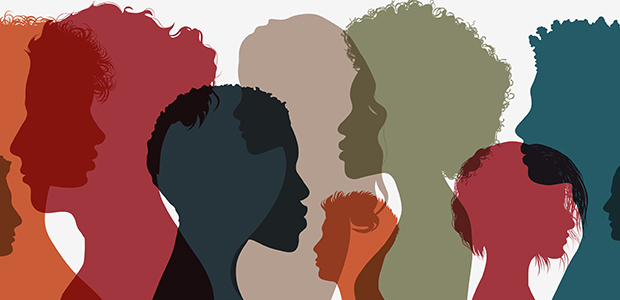
Evolve or die: why creating a diverse, multicultural workforce should be your top priority
Diversity is a word we hear a lot in the context of business and unfortunately, it’s still often used as a tick box exercise for what a company 'should' be doing. This typically means a business and its leaders do not recognise the value a diverse, multicultural team can bring to the business.
This article originally appeared in the March/April issue of Startups Magazine. Click here to subscribe
The benefits of a diverse, multicultural workforce include better brand perception, creativity and innovation, improved talent retention rates, and improved decision making thanks to diversity of thought. Not to mention, the equal treatment of people is the right thing to do on a basic human level.
So, the question you should ask yourself is not what value you get out of a diverse workforce, but whether you can afford not to build a diverse workforce.
There are many methodologies and strategies to help business leaders build diverse teams, but regardless of how you choose to implement it, it’s still a tough and overwhelming process. Each business is different, so think carefully about your approach and do as much as you can to learn about what could work best for your business.
As a global PR and communications consultancy, Gallium Ventures works with businesses launching products and services internationally, so a diverse and multicultural team sets us up for success. We do not shy away from multicultural differences; in fact we take the time to be curious and understand our clients better to deliver a higher quality experience of working with us. This is great for building trusted relationships, but it also helps us deliver incredible results when launching products and services internationally because it helps us build trusted relationships with journalists too.
My approach is more qualitative rather than quantitative. For me, it’s not about the number of CVs or number of interviews we conduct. Of course, we ensure a person’s skill sets deliver the requirements outlined in the job spec, but when it comes to hiring, I lean toward diverse, multicultural talent naturally. I think this is because as an expat myself, I am curious about their own culture and what I can also learn from them. Having spent time reflecting on this as I write this article, I realise it really does make hiring a diverse, multicultural team much easier, because I am actively seeking out people who are different to me and can help bring new insights and experiences to others.
Creativity and innovation are core values at Gallium, and a diverse, multicultural team is crucial for this. A homogenous group of people are likely to think the same way, see things in the same way and evaluate ideas in the same way. With a diverse team, you get diversity of thought. This means a wonderful variety of creative ideas that can be evaluated through different lenses to determine how successful those ideas could be.
For example, some ideas may work in one region of the world, but could be an utter failure in another because of language or cultural differences. The car brand Honda very nearly named the Jazz (as it’s known in Europe and some APAC regions) or Fit (as it’s known in Japan, the US) the 'Fitta' which is a vulgar term for female genitalia in Swedish, Norwegian and Danish. Luckily this was caught before the marketing campaign launched, but just think how much time, money and stress would have been saved if someone with an understanding of Scandinavian culture or a Scandinavian language had been involved at an earlier stage?
But merely building a diverse team doesn’t automatically mean you get to reap the rewards – you need to put the energy and effort into making employees feel they are truly valued. The term DEIB has become a more apt term than just Diversity because of this. DEIB stands for Diversity, Equity, Inclusion, and Belonging.
- Diversity: the hiring of people from differing backgrounds, locations and experiences.
- Equity: employees feel the playing field is level, for example, with pay parity.
- Inclusion: employees feel safe and welcomed in the workplace environment, they feel they can speak and will be listened to.
- Belonging: means employees have a sense of acceptance in the company, it is the culmination of Diversity, Inclusion and Equity, meaning employees truly feel they can be themselves with employers and peers.
DEIB is important because it means a business does the right thing for its employees, but it’s also good for the business. Great Place to Work found that employees that feel they belong are five times more likely to want to stay at their company a long time, and Deloitte found that there is a 50% reduction in turnover risk if employees feel a sense of belonging. With the significant business cost of replacing and training talent, retention of employees is crucial for business success.
It is for this reason businesses shouldn’t just tick the diversity box, but instead try to diversify their workforce in a way that has a cross[1]pollination of thought, experience, and learning. Hire people from different countries, from different age ranges and of different abilities. Make the time and carve out the space that is needed for you to create the diverse, multicultural workforce that will enable your business to excel.

